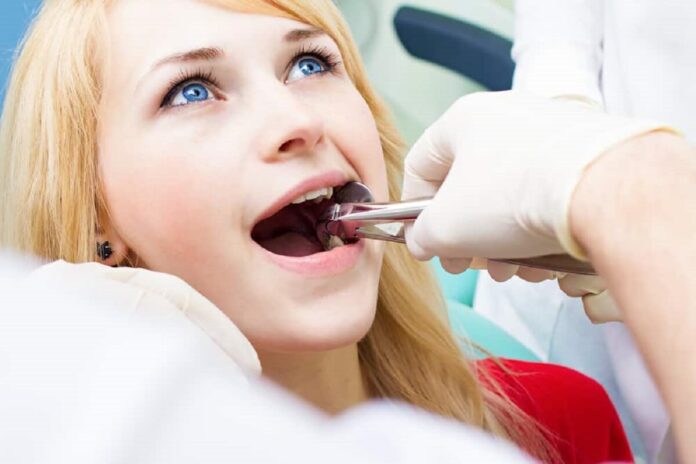Do your wisdom teeth hurt or bother you? If so, it might be time to consider wisdom teeth extraction. Wisdom teeth, or third molars, typically commence eruption during late adolescence or early adulthood. While not universally problematic, a significant proportion of individuals encounter issues with them. This article talks about the rationale behind wisdom teeth removal, the procedure’s intricacies, and the tangible benefits it can confer upon optimizing your oral health.
What are Wisdom Teeth?
Wisdom teeth, also known as third molars, are located at the back of the mouth, with a typical set of four – two in the upper jaw and two in the lower. They typically appear between 17 and 25. However, not everyone experiences trouble-free wisdom teeth development. Some encounter complications for various reasons.
Common Issues with Wisdom Teeth
Impaction Complexity
The primary concern with wisdom teeth is their potential for impaction. Impacted wisdom teeth don’t have enough space to come in properly, often due to neighboring teeth or incomplete bone coverage. This lack of space can lead to pain, infection, and swelling.
Dentition Crowding
Wisdom teeth can often lead to overcrowding of the other teeth. This causes them to shift, resulting in discomfort in the bite.
Infection and Gum Problems
Wisdom teeth that partially emerge can create pockets that harbor bacteria, leading to infection and gum diseases. These problems can manifest as pain, swelling, and bad breath.
The Wisdom Teeth Extraction Procedure
If you experience any of these issues, your dentist may recommend removing your wisdom teeth. Here’s an overview of the procedure:
Comprehensive Assessment
Before the procedure, your dentist will use X-rays to assess the position and condition of your wisdom teeth to determine the necessity of an extraction.
Anesthetic Administration
To ensure your comfort during the procedure, your dentist will administer local or general anesthesia based on the extraction complexity.
Surgical Extraction
The extraction involves careful planning. In cases of impaction, a small incision may be made to access the hidden tooth. The tooth is then carefully removed, sometimes requiring it to be sectioned.
Suturing Closure
After extraction, the surgical site is closed with dissolvable sutures, eliminating the need for manual removal.
Postoperative Care and Recovery
You’ll receive instructions on dietary restrictions, oral hygiene, and postoperative precautions to ensure a smooth recovery.
Benefits of Wisdom Teeth Extraction
Opting for wisdom teeth extraction offers several benefits for your oral health:
Pain Relief
Removal alleviates the discomfort and pain associated with impacted or misaligned wisdom teeth.
Complication Prevention
It serves as a preventive measure against potential complications such as infection, gum problems, and dental trauma.
Improved Oral Hygiene
By removing the potential site for bacterial growth, wisdom teeth extraction enhances overall oral hygiene.
Proactive Approach
Many dental professionals recommend wisdom teeth extraction as a proactive strategy. Even if there are no immediate issues, they recommend it to prevent future discomfort and complications.
Aesthetic Preservation
The procedure helps maintain the aesthetic integrity of your bite, preventing overcrowding and misalignment.
Read Also: All You Need To Know About Going To Dentists For Dental-checkup
In conclusion, wisdom teeth removal is a precise and carefully planned dental intervention that can significantly improve oral health and alleviate the problems associated with impacted or mispositioned wisdom teeth. If you’re experiencing discomfort or your dentist recommends wisdom teeth extraction, engage in a thorough discussion to understand the procedure and its benefits.






































